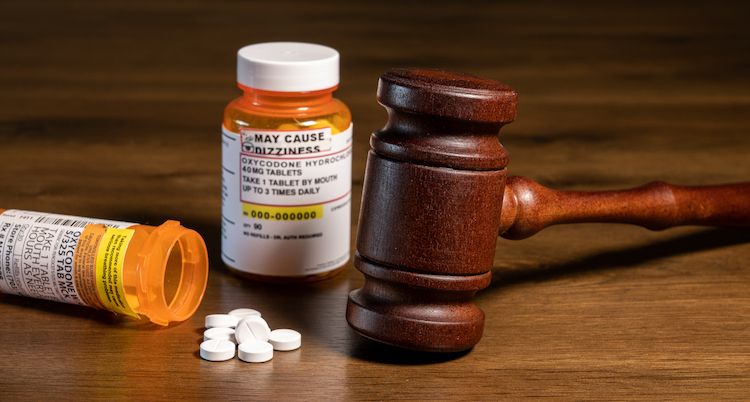Bankruptcy court had no authority to shield Sackler family in Purdue Pharma bankruptcy, judge rules

Image from Shutterstock.
A bankruptcy judge had no statutory authority to shield the Sackler family—which owns debtor Purdue Pharma—from civil lawsuits related to the drugmaker’s marketing of the opioid OxyContin, a federal judge ruled Thursday.
In her Dec. 16 decision, U.S. District Judge Colleen McMahon of the Southern District of New York vacated an order implementing part of the reorganization plan for Purdue Pharma, which filed for bankruptcy amid opioid litigation targeting its marketing of OxyContin. The Sackler family had not sought bankruptcy protection for themselves.
Law360, Reuters and the New York Times have coverage.
U.S. Bankruptcy Judge Robert Drain’s plan had dissolved Purdue Pharma and directed the Sackler family to contribute $4.5 billion to opioid abatement to resolve litigation claims against them.
A supermajority of creditors approved the plan. But eight states, the District of Columbia and more than 2,600 individual personal injury claimants objected.
McMahon said federal appeals courts are divided on whether bankruptcy judges are authorized to grant nonconsensual releases of third-party claims against nondebtor parties like the release protecting the Sacklers.
The 2nd U.S. Circuit Court of Appeals at New York identified the question as open in 2005 without resolving the issue, McMahon said.
“Its only guidance to the lower courts, uttered in that 2005 opinion, is this: Because statutory authority is questionable and such releases can be abused, they should be granted sparingly and only in ‘unique’ cases.
“This will no longer do. Either statutory authority exists, or it does not. … This court concludes that the Bankruptcy Code does not authorize such nonconsensual nondebtor releases: not in its express text (which is conceded); not in its silence (which is disputed); and not in any section or sections of the Bankruptcy Code that, read singly or together, purport to confer generalized or ‘residual’ powers on a court sitting in bankruptcy.”
U.S. Attorney General Merrick Garland praised the decision.
“The bankruptcy court did not have the authority to deprive victims of the opioid crisis of their right to sue the Sackler family,” Garland said in a statement. The Department of Justice “remains committed to opioid abatement efforts and supporting victims of opioid abuse.”
Purdue Pharma said the decision was “contrary to more than 30 years of governing precedent,” and it planned to appeal.
“While the district court decision does not affect Purdue’s rock-solid operational stability or its ability to produce its many medications safely and effectively, it will delay, and perhaps end, the ability of creditors, communities and individuals to receive billions in value to abate the opioid crisis,” said Purdue Pharma chairman Steve Miller in a statement.
See also:
ABAJournal.com: “Weekly Briefs: DOJ opposes Purdue Pharma bankruptcy deal; California bill bans ‘stealthing’”
ABAJournal.com: “3 pharmacy chains found liable in opioid epidemic in Ohio case”
ABAJournal.com: “Opioid plaintiffs in $50B suit failed to prove a public nuisance, judge tentatively rules”



